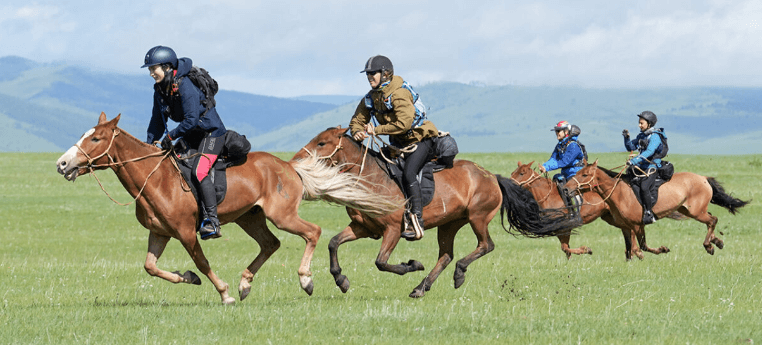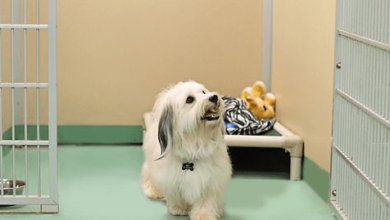How can I train for an endurance riding race?

Introduction
Endurance riding races challenge both the rider and their horse to cover long distances within a specified time. This ultimate test of stamina, resilience, and partnership requires meticulous preparation and training. Understanding the nuances of endurance riding and the importance of a structured training regime can significantly increase your chances of success.
How Can I Train for an Endurance Riding Race?
Embarking on the journey to train for an endurance riding race begins with setting realistic goals and understanding the commitment required. The initial steps involve assessing your current fitness level, both for you and your horse, and then tailoring a training program that progressively builds endurance, strength, and technique.
Physical Preparation for Endurance Riding
Developing Core Strength
Core strength is crucial for maintaining balance and stability over long distances. Incorporate exercises such as planks, squats, and lunges into your routine to build a strong foundation.
Cardiovascular Training
Endurance riding requires excellent cardiovascular fitness. Engage in activities like running, cycling, or swimming to increase your heart rate and improve stamina.
Flexibility and Balance Exercises
Flexibility and balance are essential for effective riding. Regular stretching and yoga can enhance your flexibility, while balance exercises improve your stability in the saddle.
Nutrition and Hydration Strategies
Essential Nutrients for Endurance Riders
A balanced diet rich in carbohydrates, proteins, and healthy fats fuels long training sessions and races. Understanding the role of each nutrient can optimize your performance.
Hydration Techniques Before, During, and After Races
Proper hydration is key to preventing fatigue and maintaining concentration. Learn effective hydration strategies to apply before, during, and after your races.
Mental Preparation Techniques
Mental Toughness in Endurance Riding
Developing mental toughness helps you overcome challenges and stay focused during training and races. Techniques like meditation and goal setting can build your mental resilience.
Visualization and Goal Setting
Visualizing success and setting achievable goals can significantly impact your training motivation and race performance.
Equipment and Gear Optimization
Choosing the Right Riding Gear
Selecting the appropriate gear for yourself and your horse ensures comfort and prevents injuries. Research and invest in high-quality equipment designed for endurance riding.
Maintenance and Preparation of Equipment
Regular maintenance of your gear can prevent malfunctions on race day. Learn the essentials of equipment care to keep everything in top condition.
Riding Technique and Strategy
Efficient Riding Techniques
Mastering efficient riding techniques conserves energy and enhances your horse’s performance. Focus on posture, breathing, and smooth movements.
Pacing Strategies for Long Distances
Develop pacing strategies to maintain a consistent speed throughout the race. Understanding your horse’s capabilities and monitoring fatigue levels are crucial.
Training Schedule for Endurance Riding
Sample Training Plan Overview
A well-structured training plan balances intensity and recovery. Include varied workouts that address all aspects of endurance riding.
Rest and Recovery in Training
Incorporating rest days and recovery techniques into your training schedule prevents burnout and injuries, ensuring you and your horse remain in peak condition.
Safety Measures and Injury Prevention
Common Injuries in Endurance Riding and Prevention
Familiarize yourself with common injuries in endurance riding and adopt preventive measures to safeguard against them.
Importance of Safety Gear
Wearing the right safety gear, such as helmets and protective vests, is non-negotiable. Invest in quality safety equipment to protect yourself and your horse.
Adapting Training Based on Progress
Monitoring Progress and Adjusting Training
Regularly assess your training progress and adjust your plan accordingly. Feedback from coaches or mentors can provide valuable insights.
Using Feedback to Improve Performance
Constructive feedback is a powerful tool for improvement. Embrace critiques and use them to refine your techniques and strategies.
Support Systems for Training
The Role of Coaches and Mentors
A coach or mentor with experience in endurance riding can offer guidance, support, and accountability, helping you navigate the challenges of training.
Building a Support Network
Cultivate a support network of fellow riders, friends, and family. Their encouragement can boost your morale and motivation.
Learning from Professional Endurance Riders
Case Studies and Success Stories
Studying the journeys of successful endurance riders can provide inspiration and practical insights. Learn from their experiences to enhance your own training and performance.
Lessons from Experienced Riders
Gleaning lessons from seasoned riders can accelerate your learning curve. Attend workshops, clinics, and talks to gain firsthand knowledge.
Participating in Pre-Race Events
Importance of Warm-up Races
Participating in shorter races or practice events can prepare you for the demands of full-length endurance races. Use these opportunities to test your training, equipment, and strategies.
Learning from Competitive Experiences
Every race offers valuable learning experiences. Analyze your performance, identify areas for improvement, and apply these lessons to your training.
Nutrition and Hydration on Race Day
Final Preparations for Endurance Riding
Optimizing your nutrition and hydration in the days leading up to the race can significantly impact your performance. Follow a tailored plan to ensure you’re fully fueled and hydrated.
Tips for Efficient Fueling During the Race
Learn strategies for consuming food and water during the race to maintain energy levels without causing discomfort or slowing down.
Mental Strategies for Race Day
Overcoming Race Day Nerves
Managing nerves is crucial for optimal performance. Develop a pre-race routine that helps you stay calm and focused.
Staying Focused and Motivated Throughout the Race
Maintain concentration and motivation during the race with mental techniques and strategies. Remind yourself of your training and goals to keep pushing forward.
Post-Race Recovery and Analysis
Effective Recovery Techniques
Proper recovery after the race is essential for your and your horse’s well-being. Implement recovery strategies to facilitate physical and mental recuperation.
Analyzing Performance for Future Races
Reflect on your race performance to identify strengths and areas for improvement. Use this analysis to refine your training approach for future events.
FAQs
How long should I train before participating in my first endurance race?
The duration of training depends on your current fitness level and experience. Typically, a minimum of 6 to 12 months of dedicated training is recommended to prepare adequately for an endurance riding race.
What are the best types of food to eat during endurance training?
Focus on a diet rich in complex carbohydrates, lean proteins, and healthy fats. Whole grains, fruits, vegetables, lean meats, and nuts are excellent choices. Hydration is also crucial, so drink plenty of water and electrolyte-replenishing beverages.
How can I maintain my horse’s health during training?
Regular veterinary check-ups, a balanced diet, and proper rest are essential. Tailor your horse’s training program to avoid overtraining and monitor for signs of fatigue or injury.
Is it necessary to have a coach for endurance riding training?
While not strictly necessary, a coach can provide valuable guidance, structure, and support, especially for beginners. Experienced riders may also benefit from a coach’s perspective for advanced training and strategy development.
How do I deal with setbacks during training?
Setbacks are part of the training process. Assess the cause, learn from the experience, and adjust your training plan as needed. Seek support from your coach or mentor and stay positive.
Can cross-training benefit my endurance riding preparation?
Yes, cross-training can enhance your overall fitness, prevent boredom, and reduce the risk of injury. Activities like swimming, cycling, and strength training can complement your riding training.
Conclusion
Training for an endurance riding race is a comprehensive process that requires dedication, proper planning, and attention to detail. By following a structured training program, focusing on physical and mental preparation, and utilizing the right nutrition and equipment, you can significantly improve your performance and enjoy the journey. Remember, endurance riding is not just about the race; it’s about the bond you build with your horse and the personal growth you experience along the way. Embrace the challenge, learn from each step, and stride confidently toward your endurance riding goals.







